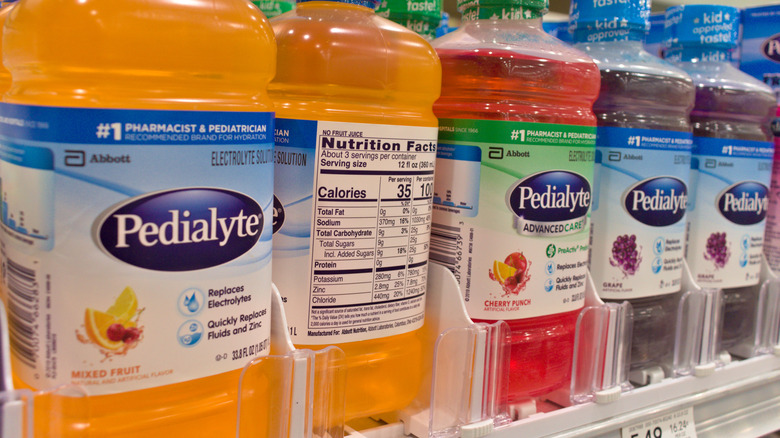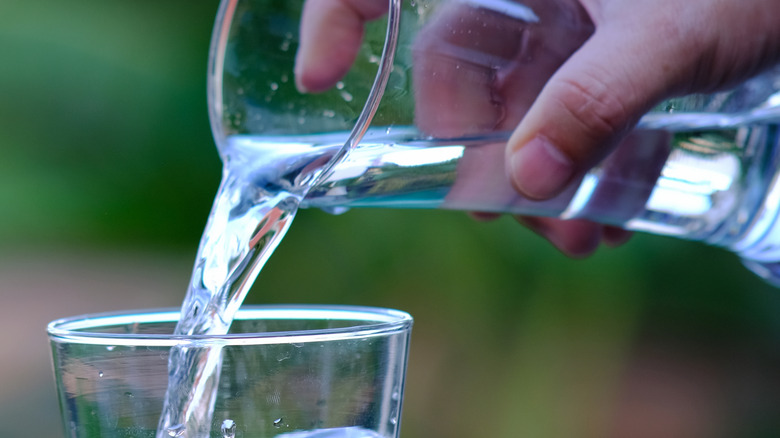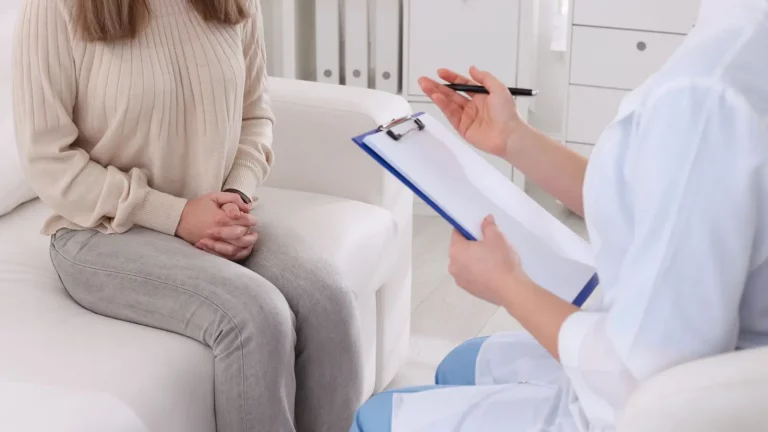
Proper hydration is essential for our bodies to function daily. Drinking water provides numerous health benefits, such as flushing out bacteria from our bladders, maintaining body temperature and blood pressure, and balancing electrolytes, according to Harvard Health Publishing. The U.S. National Academies of Sciences, Engineering, and Medicine recommends that men consume 3.7 liters of fluids daily, while women should aim for 2.7 liters per day (source: Mayo Clinic).
While water is a primary source of hydration, it’s not the only option. Pedialyte is an over-the-counter oral rehydration solution designed to replenish electrolytes lost through sweating during physical activity, illness, heat, and travel. Given that both water and Pedialyte are excellent for hydration, combining them might seem beneficial for doubling the hydration effect.
However, medical experts advise against mixing them together.
Adding water to Pedialyte will alter its formula

As per the drink’s official website, Pedialyte contains twice the sodium and significantly less sugar than most sports drinks, allowing it to correct electrolyte imbalances without causing a sugar crash. Additionally, it includes zinc, an essential mineral for proper body functioning. Available in various flavors, Pedialyte products cater to specific body needs such as immunity, muscle strength, and digestive support.
Although Pedialyte is available in different forms, its liquid formula should remain unaltered by additional liquids, including water (via Healthline). Adding other liquids would dilute the precise balance of sugar and sodium, diminishing its effectiveness. Therefore, Pedialyte liquid products should be used as is.
For children at risk of dehydration due to illness, a daily intake of 32 to 64 fluid ounces is recommended (source: Pedialyte). It’s crucial that children do not exceed this quantity and consult a pediatrician if more is needed or if symptoms persist beyond 24 hours. Furthermore, children under one year or those who are breastfeeding should seek medical advice before using Pedialyte.
“`




